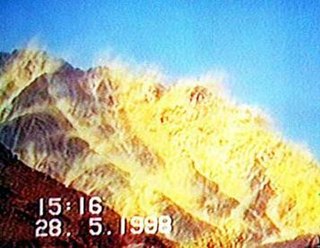 W
WProject-706, also known as Project-726 was a codename of a project to develop Pakistan's first atomic bomb using uranium. At the same time, Pakistani nuclear technology scientists and engineers gained expertise in the use of reactor-grade plutonium and successfully produced weapons grade plutonium by the early 1980s.
 W
WZulfikar Ali Bhutto was a Pakistani barrister and politician who served as the 9th Prime Minister of Pakistan from 1973 to 1977, and prior to that as the fourth President of Pakistan from 1971 to 1973. He was also the founder of the Pakistan People's Party (PPP) and served as its chairman until his execution in 1979.
 W
WChagai District, also known as Chaghi District, is the largest district of Pakistan and is located in the north west corner of Balochistan, Pakistan.
 W
WThe Chagai Hills is a range of granite hills in the Chagai District in Pakistan's Balochistan province.
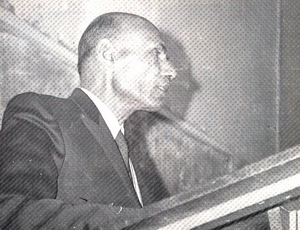 W
WRafi Muhammad Chaudhry FPAS HI, NI, SI, Skdt best known as R. M. Chaudhry, was a Pakistani nuclear physicist and a professor of particle physics at the Government College University. His teaching and instructions on modern physics influenced many of his student to pursue career in physics who regard him as one of the key architects of having been the pioneer of experimental nuclear physics research in Pakistan and, along with Abdus Salam and Ishrat Hussain Usmani, one of the main creators of Pakistan's nuclear weapons research program in the 1970s. Chaudhry, who served as professor of nuclear physics at Government College University, was later referred to by Dr. Samar Mubarakmand, one of his students, as "the true father of the nuclear weapons program of Pakistan ".
 W
WMuhammad Zia-ul-Haq was a Pakistani four-star general who became the sixth President of Pakistan after declaring martial law in 1977. He served as the head of state from 1978 until his death in 1988. He remains the country’s longest-serving head of state.
 W
WEric Gordon Hall HJ SJ HI was a Pakistani fighter and bomber pilot, and former Director-General of the Civil Aviation Authority (CAA). A two-star general in the Pakistan Air Force, Hall had served as the Vice Chief of Air Staff and was one of the most distinguished pilots belonging to the Christian minority who had participated in all of the major India−Pakistan wars, most notably the First Kashmir War, the Second Kashmir War and the Indo-Pakistani War of 1971. He had also served as the Director-General of the Pakistan Air Force's Air Force Science Research Laboratories (AFSRL) where he led atomic weapons research efforts as part of Pakistan's nuclear technology project.
 W
WThe Dr. A. Q. Khan Research Laboratories, or KRL for short, is a federally funded, multi-program national research institute and national laboratory site primarily dedicated to uranium enrichment, supercomputing and fluid mechanics. It is managed by the Ministry of Energy for the Government of Pakistan. The laboratory is located in Kahuta, a short distance north-east of Rawalpindi, Punjab, Pakistan.
 W
WKahuta is a census-designated city and tehsil in the Rawalpindi District of Punjab Province, Pakistan. The population of the Kahuta Tehsil is approximately 220,576 at the 2017 census. Kahuta is the home to the Kahuta Research Laboratories (KRL) which was founded to undertake the Kahuta Project as part of the atomic bomb project. Before the Kahuta Project, the site was occupied by retired officers of Pakistan Armed Forces and contained a small public community, including a private high school.
 W
WAftab Ghulam Nabi Kazi SPk, SK, also known as AGN Kazi, was a Pakistani civil servant and a bureaucrat during the Cold War and during the post cold war. Kazi was born in Sindh, Bombay Presidency, in 1919 to an academic family. He started his career in the Indian Civil Service in 1944 and served as the Deputy Commissioner of Bihar and Orissa. After the partition of India, Kazi migrated to Pakistan and joined the Provincial Government of Sindh, and held positions such as Secretary of Finance and Secretary to the Governor.
 W
WIshfaq Ahmad Khan SI, HI, NI, FPAS, was a Pakistani nuclear physicist, emeritus professor of high-energy physics at the National Center for Physics, and former science advisor to the Government of Pakistan.
 W
WRahimuddin Khan is a retired four-star general of the Pakistan Army who served as Chairman Joint Chiefs of Staff Committee from 1984 to 1987, after serving as the 7th Governor of Balochistan from 1978 to 1984. He also served as the 16th Governor of Sindh in 1988.
 W
WKharan is a district in the Balochistan province of Pakistan.
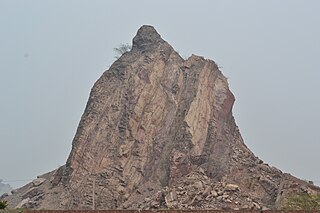 W
WThe Kirana Hills is a small and extensive rocky mountain range located in Sargodha, Pakistan. It is also a place of tourist attraction in Sargodha City. Locally known as "Black Mountains" due to its brownish landscape, its highest peak is about 980 feet (300 m).
 W
WAir Chief Marshal Mushaf Ali Mir NI(m), HI(m), SI(m), SBt. was an influential statesman and a four-star air force general who served as the Chief of Air Staff of the Pakistan Air Force (PAF), appointed on 20 November 2000 until his accidental death in a plane crash on 20 February 2003.
 W
WAir Vice-Marshal Michael John O'Brian,, was an air officer in the Pakistan Air Force (PAF) who served as the Commandant of National Defence University, Islamabad. O'Brian was the first Pakistan Air Force officer to serve as the Commandant of the university. He also served as the Deputy Chief of Air Staff, and was one of the distinguished Christian pilots who participated in Indo-Pakistan wars of 1947, 1965, and the 1971.
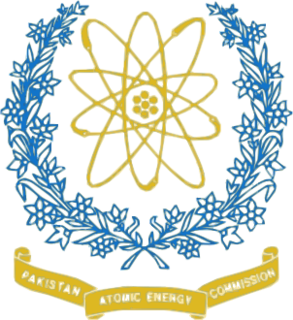 W
WThe Pakistan Atomic Energy Commission (PAEC) ; is a federally funded independent governmental agency, concerned with research and development of nuclear power, promotion of nuclear science, energy conservation and the peaceful usage of nuclear technology.
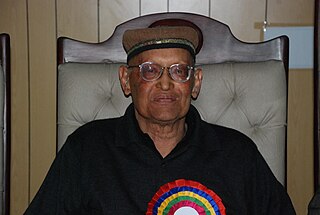 W
WAsghar Qadir HI, SI, FPAS, is a Pakistani mathematician and a prominent cosmologist, specialised in mathematical physics and physical cosmology. He is considered as one of the top mathematicians in Pakistan. He is the chairman of the Mathematics Department, and the director of School of Natural Sciences (SNS) at the National University of Sciences and Technology (NUST).
 W
WThe Ras Koh Hills is a range of granite hills forming part of the Sulaiman Mountain Range in the Chagai District in Pakistan's Balochistan province. The word "Ras" means "gateway" and the word "Koh" means "mountain" in Balochi. Ras Koh, therefore, means "Gateway to the Mountains." Pakistan's first nuclear tests were carried out in the Ras Koh Hills on 28 May 1998.
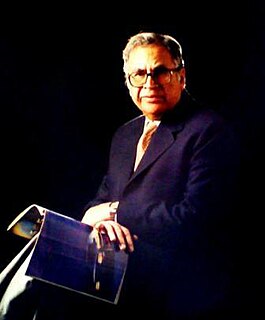 W
WRiazuddin, also spelled as Riaz-Ud-Din, was a Pakistani theoretical physicist, specialising in high-energy physics and nuclear physics. Starting his scientific research in physics in 1958, Riazuddin was considered one of the early pioneers of Pakistan's nuclear weapons development and atomic deterrence development. He was the director of the Theoretical Physics Group (TPG) of the Pakistan Atomic Energy Commission (PAEC) from 1974 until 1984. Riazuddin was a pupil of the winner of the 1979 Nobel Prize in Physics, Abdus Salam.
 W
WMohammad Abdus Salam, was a Pakistani theoretical physicist. He shared the 1979 Nobel Prize in Physics with Sheldon Glashow and Steven Weinberg for his contribution to the electroweak unification theory. He was the first Pakistani to receive a Nobel Prize in science and the second from an Islamic country to receive any Nobel Prize.
 W
WAgha Shahi, NI, was a Pakistani career Foreign service officer who was the leading civilian figure in the military government of former President General Zia-ul-Haq from 1977 to 1982. A diplomat and technocrat by profession, he joined Foreign Services in 1951 and held important diplomatic assignments in the United States, China, and the United Nations. He served as the Foreign secretary— the leading bureaucratic position in Pakistan Government— in 1973 until 1977, after Zulfikar Ali Bhutto's government was dismissed.
 W
WMuhammad Raziuddin Siddiqui, FPAS, NI, HI, SI, PhD (Urdu:محمد رضی الدین صدیقی, [rəzɪ.ʊd̪ːiːn sɪˈd̪ːiːqi];, also known as Dr. Razi, was a Pakistani theoretical physicist and a mathematician who played a role in Pakistan's education system, and Pakistan's indigenous development of nuclear weapons. An educationist and a scientist, Siddiqui established educational research institutes and universities in his country.
 W
WFriedrich Tinner, also known as Fred Tinner, is a Swiss nuclear engineer and a long-associated friend of Abdul Qadeer Khan—Pakistan's former top scientist—and connected with the Khan nuclear network trafficking in the proliferation of nuclear materials and gas centrifuge designs to Iran, Libya, and North Korea. In 2006, Tinner was revealed by the IAEA's investigators as the foreign director and technical head of the Libyan nuclear program. In Libya, Tinner ran the illicit nuclear experiments, using the expertise and technical information he received from his friend Khan, in behalf of the Libyan nuclear program. According to Khan, Tinner was the former researcher of the Kahuta Research Laboratories during the 1970s, when he worked there as a research scientist under the supervision of A. Q. Khan. Tinner is known and has been connected in particular with gas centrifuge technology used for isotopic enrichment of uranium.
 W
WAir Commodore Władysław Józef Marian Turowicz, usually referred to as W. J. M. Turowicz, was a Polish-Pakistani aviator, military scientist and aeronautical engineer.